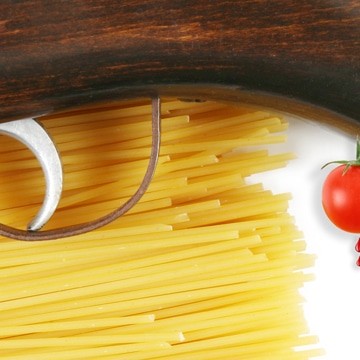At-A-Glance
- Many foods and beverages are known to cause or worsen acid reflux; these are called Trigger Foods. If you have acid reflux, your reflux triggers are individual to you; that’s called idiosyncratic. Indeed, when it comes reflux triggers, there’s tremendous individual variation.
- But, some reflux triggers affect a lot of people, e.g., alcohol, fried food, and chocolate; however, almost any food can be a trigger. Even usually-good-for-reflux foods like bananas and melons are reflux triggers for a small number of people.
- The most common mechanism of “reflux triggering” is related to a chemical in the triggering item that relaxes the lower esophageal sphincter (LES), the valve that connects the stomach to the esophagus. Substances, such as alcohol, nicotine, and caffeine have the pharmacologic effect of relaxing the LES allowing its untimely opening and the backflow of stomach contents, i.e., reflux (GERD & LPR).
- It is important to note that trigger foods do not necessarily cause reflux in non-refluxers; although the “wrong” combination of foods and factors can cause reflux in anyone, e.g., overeating too late with excessive alcohol and a fatty meal with a mint-chocolate dessert.
What Is a Reflux Trigger Food?
Many foods and beverages are known to cause or worsen acid reflux, and these are called Trigger Foods. Clinicians like me know that one of the hardest parts of treating reflux is that everybody is different, that is, reflux triggers vary from individual to individual. This variation means that your triggers are individual (idiosyncratic) to you and sometimes they require some sleuthing to identify.
How do trigger foods cause reflux? The most common mechanism of reflux triggering is related to a chemical in the triggering item. Most trigger foods and beverages relax the lower esophageal sphincter (LES), the valve that connects the stomach to the esophagus. Obviously, LES relaxation allows the untimely opening of the stomach valve, leading to backflow of stomach contents, i.e., reflux.
Sometimes reflux triggers are difficult to pinpoint, because the exact chemical that causes reflux is unknown. Here is an example: As nuts go, cashews were already considered a reflux trigger food. But today, most cashews come from Brazil, and it appears that Brazilian cashews are a very potent reflux trigger. It is believed that the chemical the manufacturer uses to remove the husk of the nut is itself a reflux trigger. No sorry, cashews are not on a anti-reflux diet!
Well-known trigger substances? There are many different chemicals and substances that relax the LES:
Nicotine
Coffee/caffeine
Fat (high-fat foods, esp. fatty meats)
Theobromine (chemical found in chocolate)
Mint (esp. peppermint and spearmint)
Pepper/peppers
Some spices
With the exception of chili powder, curry, and hot peppers (all common triggers), not all “spicy food” triggers reflux. But notably, “bad spices” are often combined with a bunch of other reflux trigger foods like onions, garlic, and fatty meats. On the other hand, most everyday herbs, such as rosemary, basil, parsley, oregano, cumin, and turmeric, do not trigger reflux.
What Are The Top 20 Reflux Trigger Foods & Beverages?
How trigger foods affect you depends on the severity of your reflux. If you have reflux symptoms every day, you should avoid all of the reflux triggers listed below for 3-4 weeks. And once your reflux is under control, add back your trigger foods one at a time; for more on this, see Dr. Koufman’s Acid Reflux Diet.
Alcohol. This may be the number one reflux trigger, and it is “dose related,” which means that the more alcohol you consume, the more likely you are to reflux; see my previous Blog on Alcohol.
Fatty Meats. High-fat meats, especially fatty cuts of beef, hamburgers, pork (bacon, hotdogs, sausage), and lamb. Better “meaty” entrée choices are poultry, fish, bison, and elk
Fried food, deep-fried, especially fast-food items like French fries are the worst; many still use very-unhealthy saturated fat.
Fast food. In general, fast foods have high amounts of fat and unhealthy chemicals, such include pizza,
Cheese. High-fat cheeses are more likely to cause reflux, but using cheeses as flavorings, such as grated parmesan on pasta, is rarely problematic.
Processed snacks. Processed foods are both refluxogenic and carcinogenic. Even seemingly benign snacks like jerky and potato chips can cause reflux.
Chili powder and pepper (white, black, cayenne). These relax the LES; capsaicin has adverse effects on vagal nerve function, which controls the gastrointestinal tract, especially delaying stomach emptying.
Energy drinks. These have high enough levels of caffeine and are acidic enough to be significant risk factors for reflux.
Chocolate. One of the most common reflux trigger foods, chocolate is a triple-whammy: Theobromine, caffeine, and fat; for more on this, see Previous Chocolate Blog.
Mint. Spearmint and peppermint both are LES-relaxing reflux triggers. If you have acid reflux, I would not recommend that you finish your meal with a chocolate mint!
Nuts. When it comes to reflux, not all nuts are created equal. Pistachios and walnuts are far less likely to cause reflux than peanuts, macadamia nuts, or cashews.
Onions. Raw and sharp onions are more likely to cause reflux than cooked (caramelized) sweet onions. Onions are a common trigger food.
Tomatoes. Fresh tomatoes are a reflux trigger for fewer than 40% of refluxers. On the other hand, prepared canned/bottled tomato products are much more likely to trigger reflux, and they also tend to be too acidic.
Garlic. The garlic meat is more likely to cause reflux compared to garlic salt or powder. Garlic is a trigger for about 50% of refluxers.
Bell peppers. Green peppers seem to be more of a problem than red or yellow ones. Bell peppers are triggers for about 25% of refluxers.
Hot peppers. The problem appears to be mostly capsaicin.
Coffee. For most people with reflux, the amount of caffeine in a cup or two of coffee per day won’t cause reflux; however, for a small group of people (maybe 15%), coffee itself, even decaf, is a reflux trigger; see Previous Coffee Post.
Citrus fruit (and fruit juice). Too acidic.
Soft drinks. Too acidic
Banana. Banana is a fruit that we almost always recommend for refluxers because it has an excellent pH (5.7), and because it rarely causes reflux. But I include it here to make the point that any food can be a trigger food. Indeed, identifying trigger foods is sometimes tricky, because trigger foods are not always obvious. Here’s an example.
An old patient came to me — one who had beaten her reflux several years before — with a new complaint: about 11:00 every morning she was experiencing heartburn even though her every-day breakfast was oatmeal with raisins and a banana. Each item was a presumably-good, reflux-safe choice; however, I suggested that she stop eating the banana, and subsequently her heartburn went away. Banana is a trigger food for <5% of people.
Avoid Compounding Trigger Foods and Behaviors
Beside foods, there are many other important reflux-causing factors. There are many other dietary and lifestyle factors that make any trigger food more potent at the reflux tipping point, including combining several reflux triggers at one meal, obesity, over-eating, drinking too-much alcohol, and eating too close to bedtime. If you want to have reflux, eat two bacon-cheeseburgers, a hotdog, French fries, and a Coke … late in the evening … and maybe drink some alcohol, too.
When My Reflux Is Under Control, Will I Still Need to Avoid My Old Reflux Trigger Foods and Beverages?
Add back the things you most enjoy that were triggers one at a time. That way you will know if it is safe. For most people, most trigger foods can be added back in their diets eventually; but that said, for some people, some trigger foods persist causing reflux problems if consumed. And remember, everyone is different.









